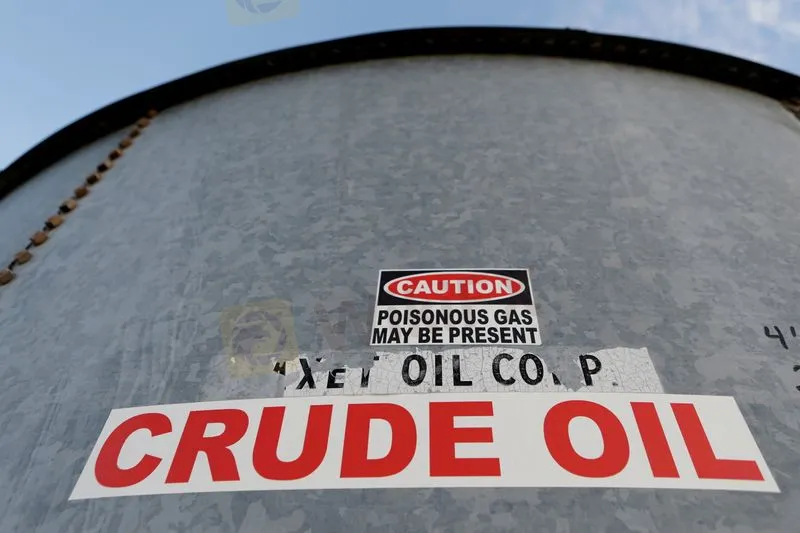简体中文
繁體中文
English
Pусский
日本語
ภาษาไทย
Tiếng Việt
Bahasa Indonesia
Español
हिन्दी
Filippiiniläinen
Français
Deutsch
Português
Türkçe
한국어
العربية
OPEC+拒绝美国关于加快石油增产的要求
Abstract:尽管美国呼吁增加供应以冷却不断上涨的价格,石油输出国组织(OPEC)及其盟友(OPEC+)在周四的会议上坚持继续执行从去年12月起将石油日产量提高40万桶的计划。

尽管美国呼吁增加供应以冷却不断上涨的价格,石油输出国组织(OPEC)及其盟友(OPEC+)在周四的会议上坚持继续执行从去年12月起将石油日产量提高40万桶的计划。其中,以经济逆风为由,OPEC主要产油国沙特阿拉伯驳回了这一呼吁。
在COVID-19大流行期间,所有石油生产商都遭受了收入的下降,随着需求随着全球经济的复苏,使他们能够重建他们的资产负债表。OPEC+的供应限制支撑了反弹,将全球基准布伦特原油推到了86.70美元的三年高点。
OPEC+消息人士称,如果美国认为世界经济需要更多能源,它自己有足够的能力提高产量。消息人士称,沙特和俄罗斯越来越相信,价格上涨不会引起美国页岩气行业快速增产。
沙特能源部长阿卜杜拉齐兹-本-萨勒曼(Prince Abdulaziz bin Salman)周四表示,生产商担心走得太快,并担心在抗击疫情的战斗中再次受挫,以及经济复苏的速度。他表示,由于消费放缓,石油库存将在2021年底和2022年初出现 “巨大的”增加。
俄罗斯副总理亚历山大-诺瓦克(Alexander Novak)表示,自8月以来,OPEC已经为全球供应增加了200万桶/日,并将继续执行其计划,在2021年下半年和2022年初的几个月里每月再增加40万桶/日。
诺瓦克表示:“有一些迹象表明,10月份欧盟的石油需求有所下降。全球石油需求仍然受到德尔塔变异毒株的压力。”这就是为什么OPEC+选择不增加石油产量的原因。更多外汇消息,请关注下载外汇天眼APP,全球交易商监管查询APP。
美国总统拜登周六曾敦促有剩余产能的G20主要能源生产国提高产量,以确保全球经济复苏更加强劲。他的声明是白宫向欧佩克及其盟友施压以增加供应的广泛努力的一部分。
白宫发言人周四表示:“OPEC+似乎不愿意在这个全球复苏的关键时刻为世界各国使用它现在拥有的能力和力量。总统认为美国人应该获得负担得起的能源,包括在加油站,并指示我们继续监测市场,准备在需要时使用所有工具。”
实际上,全球最大的石油生产国美国不属于OPEC+,其产量在2020年急剧下降,此后产量恢复的速度远远低于预期。此外,OPEC+将于12月2日再次开会。
Disclaimer:
The views in this article only represent the author's personal views, and do not constitute investment advice on this platform. This platform does not guarantee the accuracy, completeness and timeliness of the information in the article, and will not be liable for any loss caused by the use of or reliance on the information in the article.
Read more

【MACRO Alert】OPEC+ Faces the Test of Oil Price Stability, Seasonal Factors and Supply Considerations Will Determine Future Direction
After abandoning the $100 oil price target, OPEC+ faces the market's test to maintain the bottom line of $75. Although global demand continues to grow, oversupply and seasonal demand decline may lead to price pressure. In addition, the seasonal decline in demand and the planned increase in production may lead to oversupply in the market, threatening the stability of oil prices. At the same time, the U.S. EIA report shows a significant reduction in crude oil inventories, and potential demand grow

【MACRO Insight】Monetary Policy and Geopolitics - Shaping the Future of Gold and Oil Markets!?
In the ever-evolving global economy, the intertwining influences of monetary policy and geopolitical factors are reshaping the future of the gold and crude oil markets. This spring, the gold market saw a significant uptrend unexpectedly, while Brent crude oil prices displayed surprising stability. These market dynamics not only reflect the complexity of the global economy but also reveal investors' reassessment of various asset classes.
WikiFX Broker
Latest News
How Crypto Trading Transforms FX and CFD Brokerage Industry
UK would not hesitate to retaliate against US tariffs - No 10 sources
FCA Warns Against 10 Unlicensed or Clone Firms
CySEC Warns Against 14 Unlicensed Investment Websites
Top Currency Pairs to Watch for Profit This Week - March 31, 2025
Will natural disasters have an impact on the forex market?
Philippines Deports 29 Indonesians Linked to Online Scam Syndicate in Manila
Navigating the Intersection of Forex Markets, AI Technology, and Fintech
Exposed: Deceptive World of Fake Trading Gurus – Don’t Get Fooled!
AI-Powered Strategies to Improve Profits in Forex Trading
Currency Calculator







